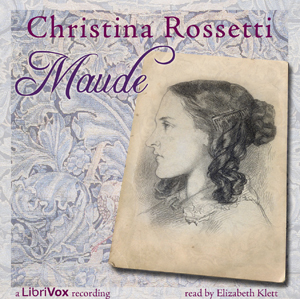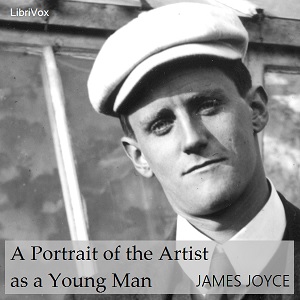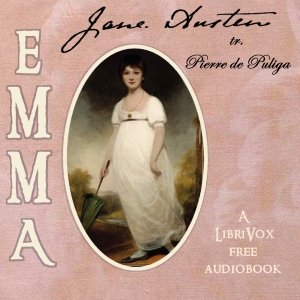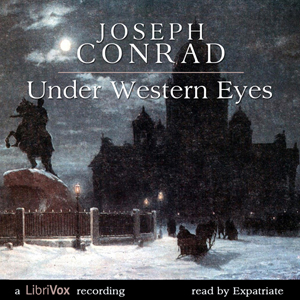
Under Western Eyes (1911) is a novel by Joseph Conrad. The novel takes place in St. Petersburg, Russia, and Geneva, Switzerland, and is viewed as Conrad's response to the themes explored in Crime and Punishment, Conrad being reputed to have detested Dostoevsky. It is also, some say, Conrad's response to his own early life; his father was a famous revolutionary imprisoned by the Russians, but, instead of following in his father's footsteps, at the age of sixteen Conrad left his native land forever....This novel is considered to be one of Conrad's major works and is close in subject matter to The Secret Agent. It is full of cynicism and conflict about the historical failures of revolutionary movements and ideals. Conrad remarks in this book, as well as others, on the irrationality of life, the opacity of character, the unfairness with which suffering is inflicted upon the innocent and poor, and the careless disregard for the lives of those with whom we share existence. - Summary by Wikipedia
27 episodes
"Mr. Britling Sees It Through" is H. G. Wells' attempt to make sense of World War I. It begins with a lighthearted account of an American visiting England for the first time, but the outbreak of war changes everything. Day by day and month by month, Wells chronicles the unfolding events and public reaction as witnessed by the inhabitants of one house in rural Essex. Each of the characters tries in a different way to keep their bearings in a world suddenly changed beyond recognition. This book was published in 1916 while the war was still in progress, so no clear resolution was possible. Wells did not know how long the war would last or which side would ultimately win, but he hoped that somehow, something good might eventually come of it. - Summary by Peter Eastman
35 episodes

The House of the Dead is a novel published in 1861 by Russian author Fyodor Dostoyevsky, which portrays the life of convicts in a Siberian prison camp. Dostoyevsky himself spent four years in exile in such a camp following his conviction for involvement in the Petrashevsky Circle. This experience allowed him to describe with great authenticity the conditions of prison life and the characters of the convicts. The narrator, Aleksandr Petrovich Goryanchikov, has been sentenced to penalty deportation to Siberia and ten years of hard labour. Life in prison is particularly hard for Aleksandr Petrovich, since he is a "gentleman" and suffers the malice of the other prisoners, nearly all of whom belong to the peasantry. Gradually Goryanchikov overcomes his revulsion at his situation and his fellow convicts, undergoing a spiritual re-awakening that culminates with his release from the camp. It is a work of great humanity; Dostoyevsky portrays the inmates of the prison with sympathy for their plight, and also expresses admiration for their energy, ingenuity and talent. He concludes that the existence of the prison, with its absurd practices and savage corporal punishments is a tragic fact, both for the prisoners and for Russia itself. - Summary by Wikipedia
22 episodes
It is Paris sometime after the Franco-Prussian War (1870--Germany won--the French Second Republic collapsed--France embittered). A French poet and a German composer come to admire one another's work and decide to collaborate on an opera. There are costs to pay. ( david wales)
2 episodes

Fascinated as she was by the lives of the Brontë siblings, May Sinclair loosely based her subtly sensual, quietly insurrectionary 1914 novel The Three Sisters on the Haworth moor milieu of the three literary Brontë sisters. Alice, Gwenda, and Mary Cartaret are the daughters of the Vicar of Garth, an abusive father with rigid, selfish expectations for female behavior. Hope of rescue seems to dawn in the person of an idealistic young doctor in the village, but this is no Austen romance. Described with Edwardian restraint, it is still sexual passion that is the underlying theme of the story: the rebellion of human sensuality in almost every major character in the story against the artificial constraints of conventional Society and Religion. Sinclair, herself a fascinating hybrid of Victorian and modern, shows the desperate, inertial ennui inherent in the lives of unmarried late-Victorian women dependent on their male guardians but fired by dreams and desires of their own. Sinclair's gently seditious fiction is always deeply imbued with philosophy as well as human psychology, giving it rich layers of interest. - Summary by Expatriate
22 episodes
A mão e a luva, romance publicado em 1874, é considerado por parte da crítica como um dos melhores de Machado de Assis, possivelmente o melhor romancista da literatura brasileira. A história de Guiomar, jovem ambiciosa, afilhada de uma baronesa, que deve escolher entre três homens qual deles oferece melhores vantagens em um casamento, é lida como uma análise da sociedade ambiciosa e da falsa inocência. - Summary by Leni
20 episodes
Maude is a novella by Christina Rossetti, written in 1850 but published posthumously in 1897. Considered by scholars to be semi-autobiographical, the protagonist is 15-year-old Maude Foster, a quiet and serious girl who writes poetry that explores the tensions between religious devotion and worldly desires. The text includes several of Rossetti's early verses, which were later published as part of her collections of poetry. - Summary by Elizabeth Klett
3 episodes
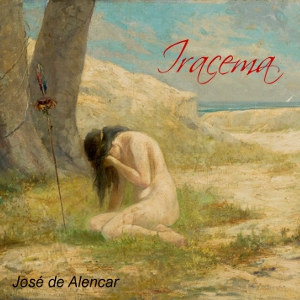
Iracema (translated as Iracema, the Honey Lips: a legend of Brazil) is considered one of the most important books of Brazilian romanticism, but also of Brazilian literature as a whole. It's been called a poem in prose, a poetic novel, a fictional-historical novel, an indianist novel, an epic-lyric narrative, a mythic poem. The obvious difficulty in defining this work shows its many facets: legendary, narrative, poetic, lyric, mythic. The story revolves around the unexpected appearance of a Portuguese warrior in the lands of the Tabajara indians, on the shores of Ceará, Brazil, in the early years of the 16th century. The Portuguese Martim meets the beautiful and young Iracema (whose name means "honey-lips") while wandering lost in the forest, and an unexpected and forbidden love is born. The story has been read as a representation of the process of colonization of the Americas as a clash and mixture of two different races in the process of creation of a new race, the name Iracema itself being an anagram of America. This is also one of the first, if not the first Brazilian novel to be translated into English. Lady Isabel Burton lived in Brazil between 1865 and 1869, having personally met the author José de Alencar, requesting his authorization and assistance for the translation, as she herself describes in the Preface.
- Summary by Leni
34 episodes
Harriett Frean is a well-to-do, unmarried woman living a life of meaningless dependency, boredom, and unproductivity as she patiently cares for her aging parents, waiting for a man to marry. When her opportunity for Love finally comes, she is offered a moral dilemma: the man is engaged to her best friend. Should she sacrifice what, according to the priorities of the time, seems like her "one chance for happiness," or should she seize the moment? Can she make something meaningful of her life without significant others? May Sinclair, as always gently ironic in tone, succeeds in skewering the conventions of her society while laying bare the hopeless realities for so many women of the era who were given so few chances really to live. ( summary by Expatriate)
15 episodes
The line between sanity and insanity is blurred in this classic novella by Anton Chekhov. The disillusioned idealist Dr. Rabin is in charge of a provincial lunatic asylum, overseeing with weary, dubious policies a motley group of patients, a group that mirrors in microcosm all of human and especially Russian society. Seeking answers to profound questions, Dr. Rabin enters into dialogues with both staff members and patients, trying to make sense out of what has become of his life, until it becomes less and less clear who is the doctor and who is the patient. Written with obvious reformist concerns about the dehumanization of "lunatics," the story is also a harrowing parable about the meaning of human existence. Summary by Expatriate.
12 episodes

Love Among the Artists was published in the United States in 1900 and in England in 1914, but it was written in 1881. In the ambience of chit-chat and frivolity among members of Victorian polite society a youthful Shaw describes his views on the arts, romantic love and the practicalities of matrimony. Dilettantes, he thinks, can love and settle down to marriage, but artists with real genius are too consumed by their work to fit that pattern. The dominant figure in the novel is Owen Jack, a musical genius, somewhat mad and quite bereft of social graces. From an abysmal beginning he rises to great fame and is lionized by socialites despite his unremitting crudity. As a study of Bohemia and its clash with conventional society, the novel is revealing of Shaw's belief that the true Artist has wholly different criteria than the ordinary person for the living of Life. Written as "a novel with a purpose," according to its author's preface, Love Among the Artists is an ironic novel with a serious intent. - Summary by Wikipedia, supplemented by Expatriate.
30 episodes
In this, Chesnutt's first novel, he tells the tragic story of love set against a backdrop of racism, miscegenation and “passing” during the period spanning the antebellum and reconstruction eras in American history. And through his use of the vernacular prevalent in the South of that time, Chesnutt lent a compassionate voice to a group that America did not want to hear. More broadly, however, Chesnutt illustrated, in this character play, the vast and perhaps insurmountable debt this country continues to pay for the sins of slavery. (Summary by James K. White)
33 episodes
Jonathan Frock hat es nicht leicht, zunächst wird er als Hauslehrer entlassen, weil er den Kindern zu viele freie Gedanken einflösst, und dann schlägt er sich als freiberuflicher Schreiber auch mehr schlecht als recht durchs Leben.
Bei liebevollen Bekanntschaften hält er sich auffallend zurück, weil er ein schweres Geheimnis mit sich herumschleppt. Aber dann droht im ein Gerichtstermin! (Summary by crowwings)
7 episodes

An 1881 comic story by Nikolai Leskov, presented in the form of a traditional skaz or folk-tale, but entirely of Leskov's invention. It tells the story of a left-handed Russian artisan required to impress Tsar Nikolas I with his craftsmanship by outdoing some famous Englishmen who have created a tiny mechanical flea. The Russian smith barricades himself with two skilled colleagues in his workshop until finally forced to come out and reveal the brilliant result of his labor. Far more famous in Russia than in the West, the story of The Steel Flea reveals much about nineteenth-century Russian attitudes toward the West and toward their own country, but is difficult to categorize. Either a celebration of Russian ingenuity or a critique of Russian autocracy, The Steel Flea has established itself as a classic worthy of any of the great Russian authors. [It should be noted that many of the most comical lines in the story are funny only in the original Russian, depending as they do on ridiculous malapropisms or ignorant combinations of words almost impossible to translate. Ms. Hapgood, for example, has had to do the best she could, rendering the mistaken word for "international" as "internecine," for "infusoria" as "nymfozoria," for "Pyramids" as "Keramids," for "stench" as "spiral," and so on.] (Summary by Expatriate)
3 episodes

Dedicated to the author's son who was wounded in World War 1, The Shadow-Line is a short novel based at sea by Joseph Conrad; it is one of his later works, being written from February to December 1915. It was first published in 1916 as a serial and in book form in 1917. The novella depicts the development of a young man upon taking a captaincy in the Orient, with the shadow line of the title representing the threshold of this development. The novella is notable for its dual narrative structure. The full, subtitled title of the novel is The Shadow-Line, A Confession, which immediately alerts the reader to the retrospective nature of the novella. The ironic constructions following from the conflict between the 'young' protagonist (who is never named) and the 'old' drive much of the underlying points of the novella, namely the nature of wisdom, experience and maturity. Conrad also extensively uses irony by comparison in the work, with characters such as Captain Giles and the ship's 'factotum' Ransome used to emphasise strengths and weaknesses of the protagonist. The novella has often been cited as a metaphor of the First World War, given its timing and references to a long struggle, the importance of camaraderie, etc. This viewpoint may also be reinforced by the knowledge that Conrad's elder son, Borys, was wounded in the First World War. Others however see the novel as having a strong supernatural influence, referring to various plot-lines in the novella such as the 'ghost' of the previous captain potentially cursing the ship, and the madness of first mate Mr Burns. Conrad himself, however, denied this link in his 'Author's Note' (1920), claiming that although critics had attempted to show this link, "The world of the living contains enough marvels and mysteries as it is." Summary by Wikipedia (edited by Expatriate)
11 episodes

As a simple story told, "The Romantic" is one of Sinclair’s tightest and most compelling. Charlotte Redhead, a young British secretary, finds herself in a degrading extra-marital affair with her boss. In reaction, she renounces Sex and links herself platonically to a handsome young Bohemian (John Conway) she meets by chance, tramping in the fields. Together, under a powerful romantic excitement, the two rush off to Belgium in the early weeks of World War I, having organized their own little volunteer ambulance corps. The romance of the adventure begins to break down when the various ambulance corps start to back-stab each other, each selfishly seeking to one-up the others for glory. The real crisis comes when the central characters begin to reveal the true human characters behind their romantic delusions, in the end turning the attention back to the genuine human suffering that was the real story of the hideous Great War. An indictment of the author’s own thrill-seeking past, as revealed in her "Journal of Impressions in Belgium," and showing some of the concerns of the so-called Lost Generation that included Hemingway and Dos Passos and Woolf, "The Romantic" weaves together a number of fascinating themes, re-interpreting with Sinclair’s inimitable frankness post-war attitudes about sex, war, patriotism, and even the new psychology. (Summary by Expatriate)
17 episodes
The Metamorphosis (German: Die Verwandlung, also sometimes translated as The Transformation) is a novella by Franz Kafka, first published in 1915. It has been cited as one of the seminal works of fiction of the 20th century and is studied in colleges and universities across the Western world. The story begins with a traveling salesman, Gregor Samsa, waking to find himself transformed (metamorphosed) into a large, monstrous insect-like creature. The cause of Samsa's transformation is never revealed, and Kafka never did give an explanation. The rest of Kafka's novella deals with Gregor's attempts to adjust to his new condition as he deals with being burdensome to his parents and sister, who are repulsed by the horrible, verminous creature Gregor has become. - Summary by Wikipedia
3 episodes
A Portrait of the Artist as a Young Man is Joyce’s semi-autobiographical first novel. It traces the early life of Stephen Dedalus and his inner struggle with the oppression of Irish society and the Catholic church, ending with his awakening as a poet and writer and self-imposed exile from Ireland.“Welcome, O life, I go to encounter for the millionth time the reality of experience and to forge in the smithy of my soul the uncreated conscience of my race.”(Description by T. Hynes, with quote from the book)
10 episodes
Paul Keller war seinerzeit einer der bekanntesten deutschen Schriftsteller. Der Sohn der Hagar (1907) dreht sich um den jungen Musiker Robert, dessen Ankunft im schlesischen Städtchen Teichau seine ihm bisher unbekannte Familiengeschichte aufrührt. (Zusammenfassung von Carolin)
25 episodes
The short stories of Giovanni Verga, one of the leading authors of Italian verismo, or realism, tell mostly of working-class characters in rural, 19th-century Sicily. One of these stories, "Rustic Chivalry," or "Cavalleria rusticana," was the basis for the opera of the same name by Mascagni. - Summary by Mary J
9 episodes
José Maria Eça de Queirós nasceu na Póvoa de Varzim (Portugal) a 25 de Novembro de 1845 e faleceu em Paris (França) a 16 de Agosto de 1900. É um dos mais importantes escritores lusos e foi autor de vários romances de reconhecida importâcia. 'Contos de Eça de Queirós' foi publicado em 1902, dois anos após a morte do autor. Neste livro encontran-se doze curtas histórias que são, na sua maioria, uma crítica à civilização materialista, histórias essas com enredos simples e moralistas. ( Wikipedia)
30 episodes
A weary survivor of the Great War, Major Rane Smith wanders in a great ennui amidst the mystical beauties of the fjords of Norway after the War, seeking a spiritual renewal. Deep in the forest he stumbles fatefully upon the strange, almost elvish home of Karl Ingman, an iconoclastic old Ibsen scholar. There Major Smith meets Ingman's two beautiful young daughters and his eldritch wife Rosa, entering into long days of profound dialogue with each member of the family. A rare and exquisite gem of a novel, The Death of Society is one of the most remarkable books of the post-War era, showing Wilson's deep intellectual, artistic, and philosophical passions against the backdrop of a romantic passion just as profound. Fallen into a strange obscurity after her untimely death, Romer Wilson deserves a revival of reputation that was recognized in her lifetime when she was awarded the prestigious Hawthornden Prize for this novel. - Summary by Expatriate
23 episodes
Pierwszy z trzech tomów klasycznego dzieła Bolesława Prusa opowiadającego historię miłości kupca Stanisława Wokulskiego do zubożałej arystokratki, Izabeli Łęckiej, na tle panoramy dziewiętnastowiecznej Warszawy. - Summary by Piotr Nater
23 episodes

Another frank May Sinclair exploration of fin de siècle English love and sex, marriage and adultery, "The Tysons" is the story of the caddish Nevill Tyson and his beautiful but frivolous young wife Molly. Sinclair uses a different narrative voice than we hear in much of her fiction, a sort of witty Jane Austen archness as she dissects the characters of the provincial village Drayton Parva. As always, she demonstrates an intriguing mixture of Victorian prudishness and modern free-thinking, particularly in her rendering of the sexual escapades of her characters. The step-by-step fragmentation of the Tyson marriage seems predestined from the start, but the novel reveals, as Sinclair's novels always do, a passion for profound understanding of the human comedy and why we do what we do. Even though the story is told from the perspectives of mostly masculine characters, Sinclair uses their voices to shine a stark light on the many ways in which women were victimized at the time by being the chattel of the men in their lives, in particular the denigration of the female intellect in favor of the merely decorative feminine beauty which existed only for the male ego. - Summary by Expatriate
23 episodes
Another remarkable World War I novel by Romer Wilson, "If All These Young Men" is a character study of a group of young 20-something friends in England dealing with the looming, grey presence of the War in their lives. The story begins on Good Friday 1918, and centers on Josephine Miller, a restless, strong-minded young woman who cannot tolerate trivialities or frivolities so long as the War goes on, and who agonizes over how to go on living in its shadow. The characters of Josephine and her friends are patterned on those of Wilson and her own coterie at the time, both male and female, revealing the profound angst of young intellectuals of the time who lived under the dread not only of invasion and national destruction, but also of the alien world that would be left for them when the monstrous conflict was over. - Summary by Expatriate
31 episodes
Traduzione italiana del celebre romanzo fantastico di Charles Lutwidge Dodgson (meglio noto sotto lo pseudonimo di Lewis Carroll) fatta dal suo amico Teodorico Pietrocola.
La traduzione di Pietrocola in un italiano ottocentesco garbato e ironico ci restituisce l’atmosfera originale di questa famosa storia che tutti conosciamo spesso però solo attraverso vari adattamenti letterari, teatrali o cinematografici. (Summary by Pier)
13 episodes
Royal Highness is the story of Prince Klaus Heinrich, a member of a struggling German duchy and an exotic American heiress who comes to live as his neighbor. The novel is a microcosm of Europe before World War I, with Mann's depiction of a decaying society that is rejuvenated by modern forces. A true modern day fairy tale. (Summary by Margaret Espaillat)
23 episodes
Part local legend of a dark and dangerous Wolf-Leader, part childhood memories of his home near Villers-Cotterets, in Aisne, Dumas here penned a chilling supernaturlal encounter between man and the devil. Our hero, Thibault the shoemaker, is beaten on the orders of the Lord of Vez for hunting in the lord's forest. With Thibault's resentment at his treatment by the world at its height, the devil sees his chance and, in the guise of a wolf, proposes a deal which Thibault accepts; the ever available trade of one's soul for evil power. With a pack of demon possessed wolves at his command, Thibault begins to explore his new power tentatively, hesitant to do evil, but unable to help himself, the momentum of the tale grown in surprising and horrifying ways until the unexpected climax. (Summary by TimoleonWash)
25 episodes
Oliver Twist es una novela humorística en la que se presentan también la hipocresía y los males sociales de la época, especialmente el reclutamiento de niños para el crimen organizado. Se publicó en 1838 como una serie de artículos. ( tux)
51 episodes
Lawrence summarised the plot of Sons and Lovers in a letter to Edward Garnett in 1912:
“It follows this idea: a woman of character and refinement goes into the lower class, and has no satisfaction in her own life. She has had a passion for her husband, so her children are born of passion, and have heaps of vitality. But as her sons grow up she selects them as lovers — first the eldest, then the second. These sons are urged into life by their reciprocal love of their mother — urged on and on. But when they come to manhood, they can't love, because their mother is the strongest power in their lives, and holds them...”
The present reader tells the story in his authentic regional English, featuring the East Midlands dialect used by Lawrence in the more intimate exchanges between characters. (Summary prepared by Martin Geeson.)
31 episodes
Ostatni tom dzieła Bolesława Prusa o miłości kupca Stanisława Wokulskiego do młodej arystokratki Izabeli Łęckiej osadzonego w szczegółowo odmalowanej Warszawie. (Summary by Piotr Nater)
23 episodes

One of the iconic characters of all Russian literature, Grigori Aleksandrovich Pechorin is the ultimate “superfluous man.” An aristocratic rake who loves the game of manipulating the lives of those around him, he callously kidnaps a Chechen teenager to be his bride, wagers the life of an inveterate gambler in a kind of philosophical Russian roulette, and engages in dangerous games with Crimean smugglers. “A Hero of Our Time” is really a collection of stories rather than a novel, culminating in the brilliant psychological novella “Princess Mary,” in which Pechorin toys tragically with the loves of two fragile women and sacrifices the life of his own friend for the sake of his own sociopathic amusement. In the process, he dissects his own motives with a kind of ruthless, surgical precision through which occasionally we see the human soul of a man in agony, who might not really want to be what he has become and who grieves over the loss of his own capacity for love and compassion. - Summary by Expatriate
21 episodes
A historical fiction novel set in Paris (1572) during Charles IX's reign and the French Wars of Religion. Marguerite de Valois, daughter of deceased Henry II, is the novel's protagonist set against the infamous schemes of the Catholic power player, Catherine de Medici. - Summary by Publisher
66 episodes

"There is no mistake about it, Alvina was a lost girl. She was cut off from everything she belonged to."
In this most under-valued of his novels, Lawrence once again presents us with a young woman hemmed in by her middle-class upbringing and (like Ursula Brangwen in The Rainbow) longing for escape. Alvina Houghton's plight, however, is given a rather comic and even picaresque treatment. Losing first her mother, a perpetual invalid, and later her cross-dressing father, a woefully ineffectual small-scale entrepreneur, Alvina feels doomed to merge with the tribe of eternal spinsters who surround her in the dreary mining community of Woodhouse.
Into this drab environment enter the Natcha-Kee-Tawara: a polyglot, poly-amorous troupe of travelling players united, on- and off-stage, in a fantasy of Native American nomadism. Enter Ciccio, the surly dark-eyed horseman. The Italian's potent and threatening physicality overwhelms Alvina and soon will propel her into - what? Perdition, or the paradoxical freedom of a girl who 'like(s) being lost'? (Summary by Martin Geeson)
23 episodes

"Canne al vento" è il più noto romanzo di Grazia Deledda, a tutt’oggi unica donna italiana insignita del Premio Nobel per la Letteratura. Pubblicato nel 1913, si tratta di un autentico capolavoro che riscosse fin dall’inizio un notevole successo di pubblico e critica.
Il titolo dell’opera racchiude il tema tanto caro alla scrittrice sarda, quello della “sorte” cui si devono piegare gli uomini, soggetti fragili che, proprio come le canne sbattute dal vento, subiscono la forza e l’inesorabilità del destino, volto a definire la vita dei singoli a dispetto dei personali proponimenti.
Sullo sfondo del paesaggio rurale di una Sardegna del primo Novecento rimasta immutata da secoli, a dimostrare questo sono i protagonisti del romanzo, a partire dall’unica delle sorelle Pintor che, ribellandosi alla rigida autorità paterna, tenterà di sfuggire a un destino già segnato nella sua terra natìa, e la cui scelta si ripercuoterà ineluttabilmente sull'esistenza dei familiari rimasti a casa, sulla vita del fedele servo Efix, nonché su quella del figlio Giacinto, che a quella terra abbandonata dalla madre farà, un giorno, ritorno… (Paola Toldo)
17 episodes
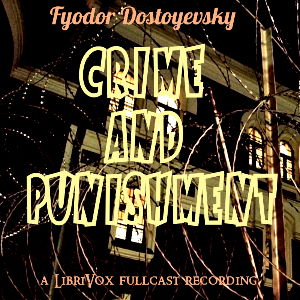
The story tells of the inner turmoil of Rodion Raskolnikov, a student in St. Petersburg who commits murder. His psychological and moral agitation is furthered and complicated by his family's arrival in St. Petersburg, his sister's engagement to a manipulative and unworthy man, and his encounters with the impoverished and troubled Marmeladov family. Summary by Mary J.Cast
Narrator: Mary J and Piotr NaterRodion Romanovitch Raskolnikov: Chris PyleSemyon Zaharovitch Marmeladov: John BurlinsonKaterina Ivanovna Marmeladova: TJ BurnsNastasya Petrovna: Patricia SilveiraPulcheria Alexandrovna Raskolnikova: Beth ThomasAlexander Grigorievich Zametov: FoonDmitri Prokofitch Razumihin: Zach K.Zossimov: Brett G. HirschPyotr Petrovitch Luzhin: EduardoAmalia Fyodorovna Lippevechsel (Amalia Ludwigovna, Amalia Ivanovna): AvailleAvdotya Romanovna Raskolnikova (Dounia): K.G.CrossSofya Semyonovna Marmeladova (Sonia): Wanda WhiteArkady Ivanovitch Svidrigaïlov: Antti VähäkainuPorfiry Petrovitch: tovarischAndrey Semyonovitch Lebeziatnikov: Peter Tucker
Various other roles read by:
tiwo007,
alanmapstone,
Algy Pug,
Eva Davis,
Antonio Soto Patiño,
Dafni Ma,
Jael Baldwin,
Antti Vähäkainu,
Mark Chulsky,
Leanne Yau,
Lian Pang,
linny,
Lydia,
MaryAnn,
Melanie T,
A LibriVox Volunteer,
KHand,
Oxenhandler,
Paezra,
Tom Penn,
Recording Person,
David Purdy,
SaraHale,
sashelliott,
SherlHolmesMD,
Larry Wilson,
Christine Lehmar,
Ashur Gharavi,
Joseph Tabler,
Michele Eaton,
Katherine Edmar,
Zechariah Ramar
Edited by: linny
Proof listeners: Kim, linny, Piotr Nater, KevinS, Tomewing, Grace Peters, Lynette Caulkins, and KHand
42 episodes

"Backwater" is the second volume of "Pilgrimage," a series of thirteen autobiographical novels by Dorothy Richardson considered to have pioneered the "stream of consciousness" technique of writing. In a review of the first volume in the series, "Pointed Roofs" (The Egoist April 1918), May Sinclair first applied the term "stream of consciousness" in her discussion of Richardson's stylistic innovations. Richardson, however, preferred the term "interior monologue." Miriam Henderson, the central character in Pilgrimage, is based on the author's own life between 1891 and 1915. Richardson is also important as a feminist writer because of the way her work assumes the validity and importance of female experiences as a subject for literature. Her wariness of the conventions of language, her bending of the normal rules of punctuation, sentence length, and so on, are used to create a feminine prose, which Richardson saw as necessary for the expression of female experience. Virginia Woolf in 1923 noted that Richardson "has invented, or, if she has not invented, developed and applied to her own uses, a sentence which we might call the psychological sentence of the feminine gender." In "Backwater," the quietly iconoclastic Miriam Richardson undertakes teaching responsibilities at a girls' school in North London; finding it to be impossible to conform to socially-acceptable interpretations of life, she anguishes over such issues as marriage, religion, the nature of happiness, and family relationships, while she begins to widen her horizons in the world. ( Wikipedia, edited by Expatriate)
18 episodes
Today the world is awash with “celebrities” whose only accomplishment is being celebrated by the media in all its various forms. Henry James, of course, long pre-dates the multiplicity of media in today’s world, when the press was the main source of adulation, and he was famously averse to giving newspaper interviews himself. For those interested in the sources of celebrity worship, however, his story, “The Papers,” showing how two aspiring London journalists worked with those who were famous simply for being famous, helps to give some idea of how such worship was practiced a century ago. (Nicholas Clifford)
9 episodes

Emile, or On Education or Émile, or Treatise on Education (French: Émile, ou De l’éducation) was published in 1762 in French and German and in 1763 in English. The significance of Rousseau in education as well as in politics must be found in his revolutionary attitude toward established institutions. Some of his biographers relate the story that when the Academy of Dijon, in 1749, offered a prize for an essay on the question whether the progress of the arts and sciences has tended to the purification of morals and manners, he followed the suggestion of Diderot, who reminded him of the greater notoriety which he could gain by advocating the negative side. The Archbishop of Paris, Christophe de Beaumont (1703-1781), saw in it a dangerous, mischievous work, and gave himself the trouble of writing a long encyclical letter in order to point out the book to the reprobation of the faithful. This was due to the Fourth Book, Confessions of a Savoyard Priest.Rousseau created an imaginary child named Emile and became his tutor. As tutor, he was careful to keep the passions in check while developing the mind. Then he created an imaginary mate for Emile named Sophy.The book was reviewed in The Monthly Review 1763 printed by Ralph Griffiths. "Rousseau says man is born twice, first to exist, then to live; once to a species and again with regard to sex. At the age of puberty commences the second birth, when he is truly born to live, and enters into full possession of the powers of human nature. Tho' nature points out the time when youth emerges from infancy this period may be either accelerated or retarded by education." It was originally translated into English as early as 1768.William H. Payne (1836–1907) translated Emile in 1895. This reading is from Barbara Foxley's 1912 translation from Gutenberg.org. (Summary by Soupy)
50 episodes
LibriVox reader Nicholas Clifford calls this Trollope's best novel in his introduction to the collaborative version of this fine novel - and he is right! A wonderful study of its central character, the proud, irascible, tormented, poverty-stricken clergyman, Josiah Crawley, who pays a heavy price for his human failings when he is brought to trial for the alleged theft of a cheque for twenty pounds. The trial is the source of much grief for his long-suffering family, not least his wife Mary and daughter Grace (the novel's romantic heroine), whilst the Reverend Crawley reminds us more and more of a mad King Lear on the heath. (Summary by Steve Gough)
84 episodes

When orphaned Oliver Twist asks for more food, the workhouse board are horrified and immediately pack him off to work for an undertaker, who treats him badly. Oliver runs away and finds himself in the streets of London, where he meets the Artful Dodger and is lured into a gang of young pickpockets, led by the evil Fagin. Even amidst his horrible surroundings, Oliver escapes and finds his way into a loving home. But Fagin's gang are determined to steal him back to their life of crime, coming closer and closer...
Dickens' classic tale of an orphan boy who has adventures with pickpockets and thieves, is here brought to life in a dramatised reading with a full cast! Scheming Fagin, cruel Bill Sykes and innocent Oliver tell their stories in their own voices, as dramatically as Dickens intended. Oliver Twist has been made into several movies and a musical, as the themes of social justice and the triumph of goodness over evil are perennially appealing.
Narrator: MrsHandOliver Twist: SweetPeaFagin: AdamskiBill Sykes: Algy PugThe Artful Dodger: EstherbenSimonidesNancy: AdeledePignerollesRose Maylie: ElizabbyMr Brownlow: jburlinsonDoctor Losberne: Peter WhyMonks: Doug42
Minor characters read by: aaronml, ACG8, AdeledePignerolles, Algy Pug, AntonK6, Apenia, BlueFunk, Bocradera, BurgerChalet, catrose, clarinetcarrot, commonsparrow3, ditt63, Doug42, East, edhumpal, Elizabby, EvenKeel, Hamlet, Kitty, Kristingj, leanneyauyau, LydiaCW, maggietravers, McFarlane, michaelcjohnson, MikeyHaz, Newgatenovelist, Peter Why, RobBoard, rockbadger, Salvationist, stilldeniel, TenorBoy, toadoftoadhall, Twinkle88, unclejoe, wib66, Willy2, WiltedScribe, ZamesCurran, zwergwolf, Elijah
Edited by: AdeledePignerolles and SweetPea
54 episodes
The sequel to "Chicot the Jester" and final book of the "Valois Romances." This story begins six years after the famed "Duel of the Mignons" between the favorites of the courts of King Henry III and Henry the Duke of Guise (somewhat allied with the King's brother, Francis, Duke of Anjou and Alencon). Dumas concludes his historical fiction on the War of the Three Henries while (1) detailing the formation of the Forty-Five Guardsmen (who were to become the Musketeers), (2) following Chicot the Jester as he stays loyal to the failing regency of King Henry III, and (3) continuing the story of Diana (a principal character in the previous book). - Summary by jvanstan
91 episodes
A collection of observations and stories about San Franciscan life - the people, the buildings, the parks, the food, the street-cars, the bay, Alcatraz, the sounds and the smells and the characteristics and idiosyncrasies of this fascinating city. Excerpt...IN the same way that the poets have loved Rome and made their pilgrimages there - as good Moslems travel toward Mecca, so there are some of us who have come to San Francisco. Then when we arrive and find it all that we have dreamed, our love for it becomes its highest tribute.
- Summary by Unknown
45 episodes

Born in London's poverty-stricken and heavily Jewish East End, the Lipcott boys create their own successes in life and love. The brothers' commitment to improving the lives of working class people leads them to concoct The Scheme to help both the residents of their former neighbourhood and the Jewish people as a whole. The author stresses the responsibility of middle class Jews toward the Jewish poor. Consequently, this 1900 story has its preachy moments as well as some essentialised speculations about Jewish history and character. But the book isn't all earnestness - there are character studies, love interests, and some great comic scenes, too!
The son of a Russian rabbi, Samuel Gordon (1871-1927) was born in Germany and came to England at the age of 13. Like Phil Lipcott, his protagonist in this novel, Gordon attended Cambridge University. The club envisioned by The Scheme seems modeled after London's Jewish Working Men's Institute. This was one of several East End organisations (e.g., the Jewish Girls Club, the Brady Boys Club) established by Jewish philanthropists around the turn of the 19th century to "instill in the rising generation all that is best in the English character..." (Col. A. E. Goldsmit, founder of the Jewish Lads Brigade). (Summary by Adrian Praetzellis)
34 episodes
Emma, "belle, intelligente et riche" a une fâcheuse tendance a vouloir marier les autres. Ce qu'elle va d'abord faire pour sa sœur, puis sa gouvernante, miss Taylor. Mais la voilà seule, avec son père âgé, veuf et très craintif, voir hypocondriaque. Son ami, M. Knightley essaie de la raisonner en l'empêchant d'avoir cette manie de marier ses proches. Pourtant, ses plans semblent relativement bien fonctionner. Qui sera donc sa prochaine protégée ? Et elle, songera-t-elle à se marier un jour ? - Summary by Laurette
54 episodes

When Helen Graham moves into old Wildfell Hall with her little son Arthur, the rustic neighborhood comes alive with gossip and speculation, particularly when saturnine Mr. Lawrence (who bears an uncanny resemblance to the child) begins to visit her clandestinely. Local gentleman farmer Gilbert Markham falls in love with her almost against his will, despite rumors that she supports herself by the work of her hands and can give no account of her origins. Only when her diary comes into Markham’s hands do we find out why she has so exiled herself. As the chapters of the diary unfold, explicit scenes of adultery, seduction, and debauchery show why the novel was so shocking when it was first published, easily outselling the more famous debut novels of the three Brontë sisters. Often called the first “feminist” novel, “Wildfell Hall” may have been most shocking for its depiction of a strong-willed, independent single mother, for its criticism of the marriage institution, and for its many passages crying out against the unfair advantages accorded to men over women.
Importantly, this recording is based on the original 1848 Newby edition, not on the later, badly-mutilated version that mystifyingly continues to be the basis for modern editions advertised as “unabridged.” The novel had already been suppressed after Anne’s death by her sister Charlotte but received an even more serious injustice in 1854 when publisher Thomas Hodgson excised over sixteen thousand words, dozens of “unladylike” profanities, and numerous descriptions of dissolute male behavior, turning the Hodgson edition into a pale shadow of Anne Brontë’s original, visceral work as here presented. - Summary by Expatriate
54 episodes
Bleak house is one of Dickens finest achievements. It was written for serialisation in 1853 when Dickens was at the peak of his career. Monthly sales substantially exceeded his previous bestseller David Copperfield.Dickens' mastery of the English language comes to the fore in this book. It is an energetic book: a complex mystery story revolving around the heroine Esther Summerson and her path from childhood to marriage. During the course of Esther’s narration Dickens introduces some wonderful and unforgettable characters, and at the same time provides a searing indictment of the laws’ corruption and self-serving interests which prevailed during that time. He pokes fun at the languid and landed aristocracy and questions the societal indifference to the poor. Detection, black comedy, farce, and tragic ruin run through the story. Critics at the time were unenthusiastic but the public were enthralled by it! - Summary by Peter John Keeble
68 episodes

A Distinguished Provincial at Paris (Un grand homme de province à Paris, 1839) is the second book in Balzac’s Lost Illusions trilogy, which is part of his sweeping set of novels collectively titled La Comédie Humaine. The story is set in post-Napoleonic France, when the new bourgeoisie was jostling for position alongside the old aristocracy. In the first volume of the trilogy (Two Poets, 1837), we met Lucien Chardon, an aspiring poet who feels stymied by the pettiness of provincial life. In the present volume, Lucien, now using the more aristocratic-sounding surname "de Rubempré," leaves behind his family in order to seek fame and fortune in the literary world of Paris. He is tested by challenges that are literary, social, financial, and ethical.Balzac’s work was hugely influential in the development of realism in fiction. The Lost Illusions trilogy is one of his greatest achievements, and is named in the reference work 1001 Books You Must Read Before You Die. The final volume in the trilogy is Ève and David (1843). - Summary by Bruce Pirie
Other volumes in this series:
Lost Illusions: Two PoetsLost Illusions: Ève and David
31 episodes

Here is a collection of 20 short plays drawn from various books by Charles Dickens such as Nicholas Nickleby, David Copperfield, Bleak House, and Our Mutual Friend. "For the use of Amateur and School Dramatic Societies" - Summary by ToddHW
Cast list:
Introduction: ToddHW
Mrs Tibbs Boarding House - From Sketches by Boz
Mrs Tibbs - A boarding-house keeper: Availle
Mr Tibbs - Her husband: Tim Watkins
Mrs Maplesone - Boarder at Mrs. Tibbs': TriciaG
Miss Matilda Maplesone - Boarder at Mrs. Tibbs': Rachel
Miss Julia Maplesone - Boarder at Mrs. Tibbs': Lian Pang
Mr Calton - Boarder at Mrs. Tibbs': Tom U
Mr Septimus Hicks - Boarder at Mrs. Tibbs': Tomas Peter
Mr Simpson - Boarder at Mrs. Tibbs': Jason in Panama
James - A boy-servant: Leanne Yau
Robinson - A maid-servant: Lydia
Stage Directions for Mrs Tibbs Boarding House: PaulHW
Horatio Sparkins - From Sketches by Boz
Mr Malderton - A City merchant: Jason in Panama
Mrs Malderton - His wife: Leanne Yau
Miss Teresa Malderton - Their daughter: Lydia
Miss Marianne Malderton - Their daughter: Lian Pang
Mr Thomas Malderton - Their son: TriciaG
Mr Jacob Barton - A grocer - brother to Mrs Malderton: KHand
Mr Flamwell - A friend of Mr Malderton: Larry Wilson
A Linen Draper: David Olson
Mr "Horatio Sparkins" - a young man: Tomas Peter
Stage Directions for Horatio Sparkins: Availle
Miss Squeers' Tea-Party - From Nicholas Nickleby
Fanny Squeers - Daughter of Mr Wackford Squeers, the Proprietor of Do-the-boys Hall: Lydia
Matilda Price - A miller's daughter, and Miss Squeers' bosom friend: Rachel
John Browdie - A Yorkshire corn-factor: ToddHW
Nicholas Nickleby - Mr Squeers; usher, lately come to Do-the-boys Hall: Tomas Peter
Stage Directions for Miss Squeers' Tea-Party: TriciaG
The Gentleman Next Door - From Nicholas Nickleby
Mrs Nickleby - A widow: Michelle Kane
Kate Nickleby - Her daughter: Rachel
The Gentleman Next Door - A harmless lunatic: TriciaG
Stage Directions for The Gentleman Next Door: Lydia
Stormy Scenes in the Varden Household - From Barnaby Rudge
Gabriel Varden - A locksmith: ToddHW
Mrs Varden - His wife: Kalynda
Dolly Varden - Their daughter: Rachel
Miggs - Mrs Varden's "domestic": Bev J Stevens
Edward Chester - A young gentleman: Tomas Peter
Joe Willet - Dolly's sweetheart: TriciaG
Stage Directions for Stormy Scenes: Lydia
Hatching a Conspiracy - From Barnaby Rudge
Miggs - The "domestic" of Mrs Varden: Bev J Stevens
Simon Tappertit - Gabriel Varden's apprentice: Tomas Peter
Stage Directions for Hatching a Conspiracy: Lydia
The Stranger's Visit - From Barnaby Rudge
Barnaby Rudge - An idiot youth: Tomas Peter
Mrs Rudge - His mother, living as a widow: Leanne Yau
The Stranger - Banaby's father, a murderer in hiding, but supposed to have been murdered himself: K. Adrian Stroet
Stage Directions for The Stranger's Visit: Lydia
The Great Protestant Association - From Barnaby Rudge
Lord George Gordon - A religious fanatic (President of the Great Protestant Association): TriciaG
Gashford - His Secretary: Leanne Yau
Dennis - The hangman: K. Adrian Stroet
Hugh - An hostler at the Maypole Inn, who has run away from his master: Tomas Peter
Stage Directions for The Great Protestant Association: Lydia
Mr. Pecksniff's Pleasant Family Party - From Martin Chuzzlewit
Mr Pecksniff - An architect and land-surveyor: K. Adrian Stroet
Charity Pecksniff - His daughter: Lydia
Mercy Pecksniff - His daughter: Rachel
Mr Spottletoe: ToddHW
Mr Anthony Chuzzlewit - Relative of Mr Pecksniff, each of whom has designs on the property of old Mr Martin Chuzzlewit: TriciaG
Mr George Chuzzlewit - Relative of Mr Pecksniff, each of whom has designs on the property of old Mr Martin Chuzzlewit: Tomas Peter
Mrs Chuzzlewit - Relative of Mr Pecksniff, each of whom has designs on the property of old Mr Martin Chuzzlewit: Amy Deuchler
Miss Chuzzlewit - Relative of Mr Pecksniff, each of whom has designs on the property of old Mr Martin Chuzzlewit: Leanne Yau
Stage Directions for Mr Pecksniff's Pleasant Family Party: Zames Curran
An Unexpected Meeting - From Martin Chuzzlewit
Martin Chuzzlewit - A young gentleman who is "hard up": Tomas Peter
Montague Tigg - An undesirable acquaintance of Martin Chuzzlewit: K. Adrian Stroet
A Shopman: ToddHW
Stage Directions for An Unexpected Meeting: Lydia
A Division Between Friends - From Martin Chuzzlewit
Sairey Gamp - Professional nurse: TriciaG
Betsy Prig - Professional nurse: Availle
Mr Sweedlepipe: ToddHW
Stage Directions for A Division Between Friends: MaryAnn
The Friendly Waiter - From David Copperfield
David Copperfield - A small boy: Lydia
William - A waiter: K. Adrian Stroet
Stage Directions for The Friendly Waiter: Availle
Betsy Trotwood at Home - From David Copperfield
Miss Betsy Trotwood - An elderly lady: Christine Lehman
"Mr Dick" - A harmless lunatic: Twinkle
Janet - Maid-servant to Miss Betsy Trotwood: Rachel
David Copperfield - A small boy, to whom Miss Betsy Trotwood is great-aunt: Lydia
Mr Murdstone - David Copperfield's step-father: ToddHW
Miss Murdstone - His sister: Christine Lehman
Stage Directions for Betsy Trotwood at Home: TriciaG
Mr. Micawber's Prospects - From David Copperfield
Mr Wilkins Micawber - A gentleman who is "waiting for something to turn up": ToddHW
Mrs Micawber - His wife: Arielle Lipshaw
David Copperfield - Law-student: Leanne Yau
Traddles - Law-student: Tomas Peter
Stage Directions for Mr Micawber's Prospects: Lydia
Mr. Guppy's Proposal - From Bleak House
Esther Summerson - Ward of John Jarndyce: Rachel
Mr Guppy - Clerk to the Firm of Kenge and Carboy, Solicitors: Tomas Peter
Stage Directions for Mr Guppy's Proposal: Lydia
Mrs. Snagsby's Guests - From Bleak House
Mr Snagsby - A law-stationer: TriciaG
Mrs Snagsby - His wife: Leanne Yau
The Rev Mr Chadband - A "vessel in the Ministry": Tomas Peter
Guster - Mrs Snagsby's maid-of-all-work: Lydia
Stage Directions for Mrs Snagsby's Guests: ToddHW
Mr. George's Shooting Gallery - From Bleak House
Mr George - Proprietor of the Shooting Gallery: Averagemoe
Phil Squod - His "familiar": ToddHW
Grandfather Smallweed - A miser and money-lender: TriciaG
Stage Directions for Mr George's Shooting Gallery: MaryAnn
Silas Wegg's Stall - From Our Mutual Friend
Silas Wegg - A stall-keeper and ballad-monger: ToddHW
Mr Boffin - A retired dustman: TriciaG
Stage Directions for Silas Wegg's Stall: Lydia
Mr. Venus's Shop - From Our Mutual Friend
Mr Venus - A "Preserver of Animals and Birds": Bill Mosley
Silas Wegg - A stall-keeper and ballad-monger: ToddHW
Boy: Lydia
Stage Directions for Mr Venus's Shop: TriciaG
At "Jenny Wren's" - From Our Mutual Friend
"Jenny Wren" - A dolls' dress-maker: Lian Pang
"Her Bad Child" - Jenny Wren's father: ToddHW
Lizzie Hexam - Jenny Wren's friend, who is living with her: Rachel
Charlie Hexam - Lizzie Hexam's brother - a pupil-teacher: TriciaG
Bradley Headstone - Charlie Hexam's school-master, in love with Lizzie: Tomas Peter
Stage Directions for At Jenny Wren's: Lydia
All edited by: ToddHW
21 episodes
After the death of his father, Nicholas must provide for his mother and sister. His wealthy uncle provides him with employment at a boys' school, run by the villainous Mr. Squeers. But when Nicholas has seen enough of the brutal manner in which Squeers treats the boys, he attacks him--and is forced to go on the run to avoid the ramifications. - Summary by Brad "Hamlet" Filippone
66 episodes






